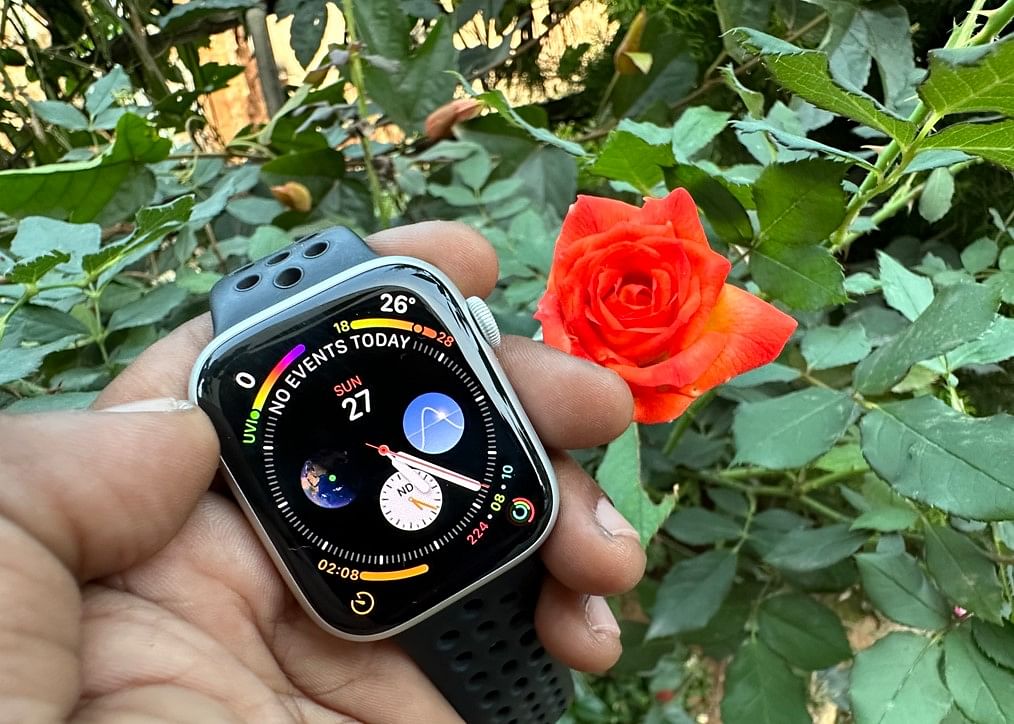
Since the launch of the first generation Apple Watch in 2015, every new iteration has set the gold standard for heart health tracking. Even statistics available in the public domain, indicate Apple's smart wearables have saved thousands of lives around the world.
With the Apple Health app, Apple Watch users will also get insightful information about their body health. It offers more than 20 types of data on the Health app — ranging from resting heart rate to sleep to cardio fitness. With this, users get an overview of their body health.
Also, as part of the Investigator Support Program, Apple collaborates with big medical institutions around the world for research studies. Based on the test data, the company tries to improve or bring new features to its products. As it did with the introduction of health trends, AFib (Atrial fibrillation) history, offers valuable data to users to keep good track of their body fitness and heart health.
Now, the Cupertino-based company is working with associate professor Rachel Conyers and Dr Claudia Toro, senior pediatric oncologists from Melbourne, Australia at Murdoch Children’s Research Institute, for a study on the effects of cancer treatment on heart health of the patients, particularly in younger age-group.
As per recent studies, toxicities in cancer treatment can lead to heart rhythm disturbances, such as prolonged QT syndrome, which is said to be potentially life-threatening.
It should be noted that prolonged QT creates an irregular heart rhythm, increasing the time needed for blood to flow through the heart. Because of their susceptibility to long QT, children receiving cancer treatment are routinely screened at least once per week with a 12-lead electrocardiogram, Dr Conyers noted
Earlier research had revealed that cardiac toxicity was to be noticed around 10 years after treatment. But, now Dr. Conyers' team has found that new cancer therapies (like specific inhibitors or immune therapy) can cause arrhythmias within 48 hours of medication. This highlights there's a really big gap in terms of what researchers know about the toxicities now and then.
Soon, Dr. Conyers' will begin researching the sensitivity of the Apple Watch ECG app. And, in the coming months, they will start the study on 40 children and adolescent patients, with an aim to better understand the reality of cardiac toxicity and also, try to find a potential breakthrough solution.
Besides the collaboration with Murdoch Children’s Research Institute, Apple will also work with researchers at Texas A&M University (Dr. So-Min Cheon) and at Stanford Medicine (Drs. Brian Kim and Marco Perez) to study the health of firefighters.
They will be doing research on the impact of wildfire smoke on the heart health of the people. More than 200 firefighters from Texas and California will be offered Apple Watches for the study. The experts will monitor heart rate and rhythm, sleep, blood oxygen, activity data, and more. Firefighters will also wear an air quality monitor and complete surveys related to sleep, activity, and wildfire smoke-related symptoms.
“Studies like this one haven’t been done before, so it’s not a matter of proving or disproving a hypothesis. It’s more exploratory and the outcomes will help us understand the accuracy of an analysis like this to generate tailored interventions. I also think a study of this nature could help us understand high-risk groups better,” said Dr. Cheong.
And, Apple is also working with Amsterdam University Medical Centers, to study AFib (Atrial fibrillation) in senior citizens.
The randomised controlled research aims to identify early signs of AFib in people aged 65 and above. For three weeks, the participants will take tests on Apple Watch's ECG (Electrocardiogram) app once every week, to check on their heart health.
Already, it has found some success. Within three weeks of the study, the experts were able to identify a participant with AFib in the intervention group who wasn’t experiencing any symptoms.
The researchers will continue the study a little longer to find if they can find other unknown signs that can help in the faster detection of Afib in senior citizens.
Get the latest news on new launches, gadget reviews, apps, cybersecurity, and more on personal technology only on DH Tech.